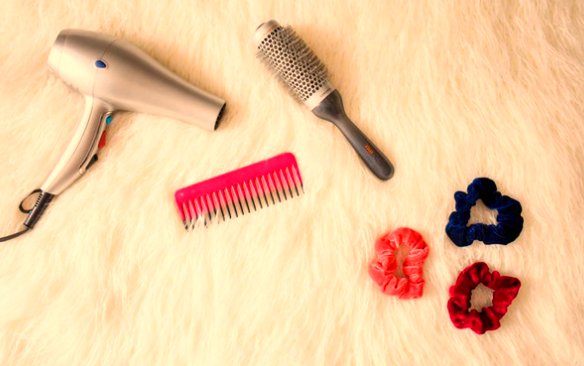10 Hair Care Tips, Top10 Hair Care Tips:
One of
the best top 10 hair care tips for
healthy hair are:-

10 Hair Care Tips, Top 10 Hair Care Tips
1.Silicone
for Thin Hair:
Hair
that is thin and lifeless is a frequent complaint, but few women are aware of
the best treatment options. Conditioners that are too thick can make your hair
limp. Use silicone-containing products like dimethicone or cyclomethicone
instead. These leave a thin coating on the strands, giving the appearance of
thicker hair that isn't greasy. Even after washing with water, the Si remains
intact.
2. Fish
and Nut For Good Health and Strong Hair:
The
same healthy meals that benefit your body also benefit your hair, making it
stronger and healthier. Eat a lot of salmon and almonds! Their protein and
omega-3 fatty acids aid in the development of a healthy scalp. Leafy greens,
beans, and carrots are very beneficial to your hair. Be wary of rage foods that
promise swift weight loss. They can deplete your body of essential nutrients,
resulting in brittle hair or hair loss.
3. Warm water is good for Healthy Hair:
The
protective oils that function as a natural conditioner can be stripped away by
hot water. Your hair's natural shine may also fade. This does not imply that
you must endure cold showers in order to avoid dull hair. Instead, wash your
hair with lukewarm water. Massage your scalp while shampooing to pamper it.
4. Protein helps to repair Split-Ends Hair:
If
you use hot tools to style your hair frequently, or if you colour, bleach, or
perm your hair frequently, you risk damaging the hair's protective outer layer.
"Split ends" is the outcome. Hair products can help repair the
damage, thankfully. Look for protein-based conditioners. They heal broken ends
by sinking into the hair shaft. You'll need to use them on a frequent basis
because the repair only lasts until the following shampoo.
5. Use
of light Color for Hair:
Hair
not only changes colour as we age, but it also weakens and grows more slowly.
As a result, damaged hair will take longer to be clipped off by haircuts. To
minimise damage, chemicals used on "aged" hair should be milder.
6. Dandruff
not to be dealt with Oils:
Despite
the white flakes that drift down to your shoulders, dandruff is not a form of
dry skin. The cause is a minor scalp skin condition. Rubbing oil into the scalp
can only aggravate the problem. The best solution is to buy shampoo with
medication from a drugstore or a dermatologist. Allow 5 minutes for the shampoo
to sink into your scalp. Make sure you rinse everything completely.
7. Dryers
may be carefully used for Healthy Hair:
You
might think that a strong blow dryer can help you save time when styling your
hair. In a comparison of blow dryers, Consumer Reports discovered that they all
took approximately the same amount of time to dry hair. However, some are more
louder than others. The researchers discovered that the quietest dryers were
the most costly, while the loudest were as noisy as a lawn mower.
8. Minimum
Brush Usage to prevent Hair Loss:
Don't
be fooled by the illusion of 100 brush strokes every day. Brushing too much
will cause hairs to fall out. Normal hair loss is between 50 and 100 hairs per
day for most people. These have reached a resting stage and have ceased
developing. Use a brush with ball-tipped bristles to avoid losing any more hair
than necessary. Also, never brush damp hair; instead, use a comb.
 |
| 10 Hair Care Tips, Top 10 Hair Care Tips |
9. Be
careful with Tightly Wound-Hair:
Ponytails
and braids are excellent methods to show off your individuality. When they're
too tight, though, they might break hair and cause harm to the roots. Wearing a
tight style all day might cause your hair to fall out. Every night, let your
hair down! Leave hair a bit slack at the scalp for braided styles that will
last months. Give your hair a rest after three months if you're using hefty
extensions.
10. Don’t
be Brand Conscious:
What exactly do you receive for the additional cash you spend on specialist items? Consumer Reports evaluated shampoos on 1,700 ponytail samples and discovered that more expensive shampoos were no better than less expensive shampoos. What should you invest in? Choose shampoos and conditioners that are formulated for your hair type, such as greasy, fine, or color-treated hair.
Further to Know:

0 Comments